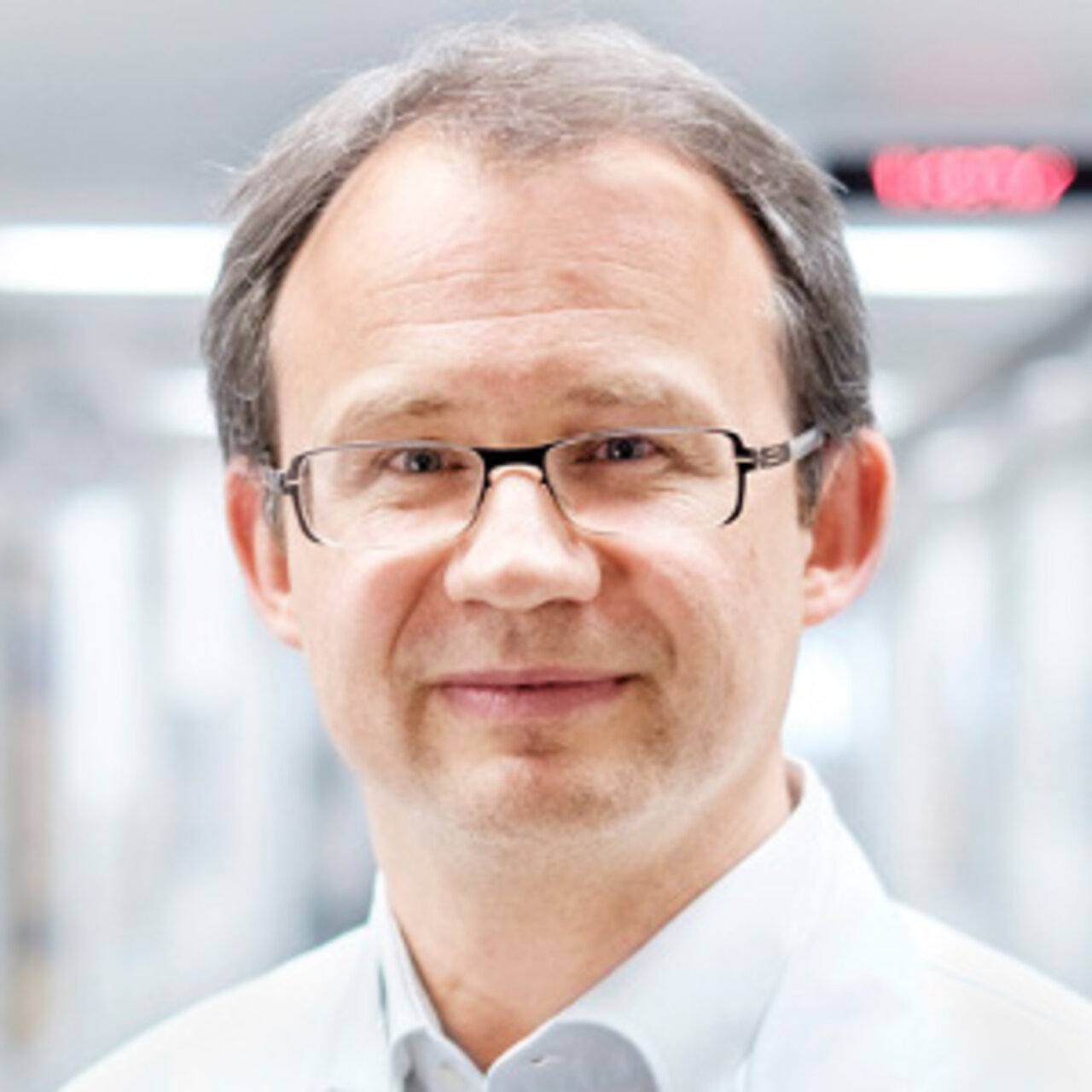Specialists in Bowel Cancer
10 Specialists found
Information About the Field of Bowel Cancer
What is bowel cancer?
When speaking of " bowel cancer", the general public usually refers to cancer of the colon or rectum (also known as colorectal carcinoma or colon carcinoma), because tumors of the small intestine are relatively rare. The number of colorectal carcinomas continues to increase, especially in the western world.
At present, about 20/100.000 new cases of colorectal carcinoma are diagnosed in Europe every year. Colorectal carcinoma is therefore the second most common tumor in industrialized countries; the only more frequent tumors are breast cancer in women and prostate carcinoma in men. After the age of 40 in particular, the risk of developing colorectal cancer rises sharply.
How does colon cancer develop?
These carcinomas arise as a result of a multi-step process that they must go through as the tumor grows. We call this process the "adenoma-carcinoma sequence." As such, every carcinoma (cancer) in the colon previously used to be an adenoma (benign cell growth), whereas not every adenoma necessarily goes on to become a carcinoma. With complete removal of the benign adenoma ( in the colon referred to as a polyp) during a colonoscopy, it is possible to stop the development of the malignant tumor and hence the patient can be safely treated before the disease develops.
For this reason, it is extremely important for every person, male or female, to undergo a colonoscopy from the age of about 50 ( in each case according to the family risk, e.g. close relatives who have already developed colorectal cancer), because this can prevent a major share of colorectal cancer cases! Furthermore, as part of the early detection of colorectal cancer starting at the age of 50, stool should be examined annually for blood and a rectal examination for low rectal tumors should be performed. Please consider your health - go for colorectal cancer screening and colonoscopy!
Distinct risk factors associated with colon cancer development are high fat and meat intake, as well as a diet low in fiber. 5 - 10% of colorectal carcinomas are genetic. The most frequent disease syndrome causing bowel cancer is the so-called "Lynch syndrome" (HNPCC, hereditary non-polyposis colon carcinoma). This syndrome leads to a wide range of tumors resulting from genetic defects (besides colorectal cancer there is also endometrial carcinoma, gastric carcinoma, etc.).
What are symptoms of colorectal cancer?
The symptoms can vary greatly according to where the cancer of the large intestine is located. For instance, there may be occult intestinal bleeding and therefore blood in the stool. These often cannot be seen with the naked eye, since they are only small traces. A quick laboratory test can reveal blood in the stool. Blood deficiency, weight loss, lower abdominal pain or stool irregularities may also be signs of a progressing tumor. Similarly, flatulence (meteorism) or constipation can be fairly nonspecific cancer symptoms. Complications that can be associated with an intestinal tumor include complete bowel obstruction (ileus), hemorrhage, bowel perforations, or even invasion of adjacent organs like the vagina.
How is colorectal cancer diagnosed?
Since the symptoms of colorectal cancer are not specific and do not appear early on, the diagnosis is usually delayed. The main method of detecting colorectal tumors is by flexible colonoscopy. To determine the extent of the tumor and possible metastases, computed tomography (CT) with contrast medium is the primary method used.
How can colon cancer be treated?
In case of colon carcinoma without distant metastases (tumor spread), the basic approach is complete surgical resection of the tumor. Currently, this complete resection in healthy tissue with a sufficient safety margin is the only curative treatment method. These procedures can generally also be performed in a minimally invasive manner. The technical practicability, however, is always dependent on the exact tumor location and the expertise of the surgeon performing the operation.
Following surgery, those patients who also have lymph nodes invaded by tumor cells should receive additional chemotherapy. The radiotherapy is an integral part of the treatment of rectal cancer only. In this case, it is often administered in combination with chemotherapy as radiochemotherapy.
If operable liver metastases have occurred, they can be removed in a single operation along with the bowel surgery. Since this places a high physical burden on the patient, however, the operations are usually performed a few weeks apart. If non-operable liver metastases are present, they can be reduced in size and thereby rendered resectable by various techniques, such as neoadjuvant chemotherapy (see "liver metastases"). If the tumor stage is already far advanced with a large quantity of distant metastases, curative surgery can generally no longer be performed. In such cases, it may be beneficial to carry out palliative surgery in individual cases, such as when the tumor growth causes intestinal obstruction or bleeding.
What are the chances of a cure for colorectal cancer?
The 5-year survival rate following surgery is greater than 70% for patients who have had complete tumor removal, and there is a real chance of cure in most cases.
Which doctors and clinics specialize in colorectal cancer in Germany, Austria and Switzerland?
If you're suffering from colorectal carcinoma, you expect the best medical care possible. So of course patients are curious to find the best clinic for bowel cancer.
As there is no objective way to answer this question and a legitimate doctor would never claim to be the best, patients must rely on a doctor's experience. The more bowel cancer patients a doctor has treated, the greater his or her experience in the field becomes.
As such, colorectal cancer experts are clinics and doctors who specialize in the diagnosis and treatment of cancers affecting the digestive organs.
We provide you with selected and certified colorectal cancer clinics specialized in the treatment of colorectal cancer in line with the most up-to-date medical standards. Our website gives you the opportunity to contact the respective specialist or clinic directly.
Sources:
- www.krebsinformationsdienst.de/tumorarten/darmkrebs/
- www.darmkrebs.de/
- Innere Medizin, Gerd Herold und Mitarbeiter, 2014
- Chirurgie, Siewert/Stein, 9. Auflage, Springer Verlag









